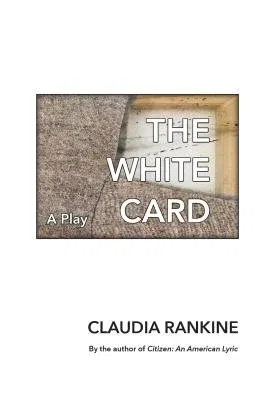A play about the imagined fault line between black and white lives by
Claudia Rankine, the author of *Citizen
*
The White Card stages a conversation that is both informed and derailed
by the black/white American drama. The scenes in this one-act play, for
all the characters' disagreements, stalemates, and seeming impasses,
explore what happens if one is willing to stay in the room when it is
painful to bear the pressure to listen and the obligation to respond.
--from the introduction by Claudia Rankine
Claudia Rankine's first published play, The White Card, poses the
essential question: Can American society progress if whiteness remains
invisible?
Composed of two scenes, the play opens with a dinner party thrown by
Virginia and Charles, an influential Manhattan couple, for the
up-and-coming artist Charlotte. Their conversation about art and
representations of race spirals toward the devastation of Virginia and
Charles's intentions. One year later, the second scene brings Charlotte
and Charles into the artist's studio, and their confrontation raises
both the stakes and the questions of what--and who--is actually on
display.
Rankine's The White Card is a moving and revelatory distillation of
racial divisions as experienced in the white spaces of the living room,
the art gallery, the theater, and the imagination itself.

